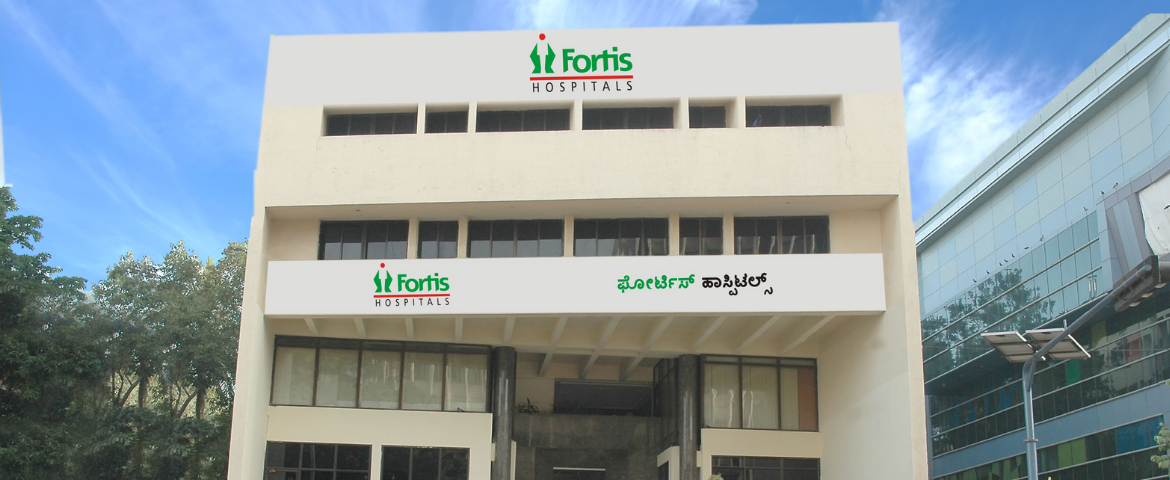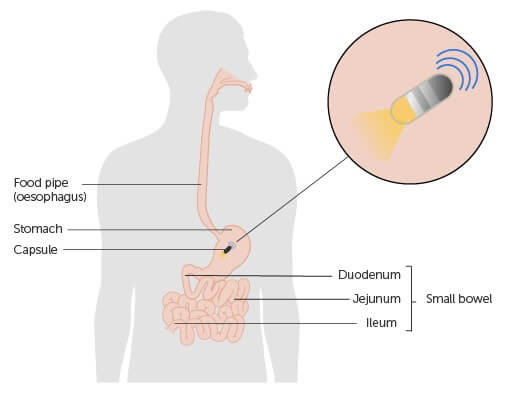Capsule Endoscopy cost in India
The cost of Capsule Endoscopy in India ranges from USD 1950 to USD 4000
Procedure Description:
Capsule Endoscopy:
During a process called capsule endoscopy, a tiny wireless camera is used to obtain images of the organs that food and liquids pass through in the body. The digestive tract is the term for this. Within a capsule the size of a vitamin is a capsule endoscopy camera. The capsule passes through the digestive system after being consumed. Thousands of images captured by the camera are transferred to a recorder that is fastened to a belt around the waist.
Inside the small intestine, as seen by capsule endoscopy. Other endoscopic techniques make it difficult to access this location.
Disease Overview:
Crohn's disease
An inflammatory bowel condition called Crohn's disease results in persistent inflammation of the gastrointestinal tract, which runs from your stomach to your anus. It can affect different parts of the GI tract in different persons, and it frequently progresses into the bowel's deeper layers.
Disease Sign and Symptoms:
Consult your physician if your bowel habits are consistently changing or if you exhibit any of the following indications and symptoms of Crohn's disease:
1. Pain in the abdomen.
2. Blood in your feces.
3. Vomiting and nausea.
4. Prolonged diarrhea exceeding fourteen days.
5. Loss of weight without cause.
addition to any of the aforementioned symptoms, a fever.
Disease Causes:
We still don't know the precise cause of Crohn's disease. Although stress and food were once thought to be contributing factors, medical professionals now understand that these things only worsen Crohn's disease. Its development most likely stems from a number of variables.
1. The immune system. There's a chance that a virus or bacteria could cause Crohn's disease, but researchers haven't found one yet. An unusual immune response leads your immune system to attack the cells in your digestive tract as well as the invasive microbe or environmental trigger.
2. Genetics. Genes may contribute to an individual's increased risk of developing Crohn's disease, as the condition is more prevalent in those who have family relatives who have it. Nonetheless, the majority of Crohn's disease sufferers do not have a family history of the condition.
Disease Diagnosis:
To help confirm a Crohn's disease diagnosis, your doctor may probably do a number of tests, such as the following:
laboratory examinations
1. Hematologic testing. Blood tests may be recommended by your doctor to look for infection symptoms or to check for anemia, a condition in which the body lacks enough red blood cells to provide enough oxygen to the tissues.
2. Studies on stool. For the purpose of testing for hidden (occult) blood or organisms, such as bacteria that cause infections or, in rare cases, parasites, in your stool, your doctor might request a sample of your stools.
Other Methods
1. Colonoscopy. This test uses a thin, flexible, illuminated tube with a camera at the end to let your doctor to see your whole colon and the terminal ileum, the very end of your ileum. In order to aid in the diagnosis-making process, your doctor may also biopsy—small samples of tissue—for laboratory testing during the surgery.
2. CT, or computerized tomography. You might be receiving a CT scan, which is a specialized form of X-ray that offers greater information than a typical X-ray. This examination examines the tissues outside the colon as well as the entire colon.
3. MRIs, or magnetic resonance imaging.
4- Endoscopy by capsule. You ingest a capsule containing a camera in order to take this exam. Your small intestine is captured on camera, and the images are sent to a recorder that you wear on your belt. After being downloaded to a computer and seen on a monitor, the pictures are examined for indications of Crohn's disease. In your stool, the camera painlessly leaves your body.
Disease Treatment:
Crohn's disease does not yet have a cure, nor is there a single effective treatment. Reducing inflammation is one of the main objectives of medical treatment, as it causes your symptoms and signs. Reducing complications has the additional objective of improving the long-term prognosis. In the best circumstances, this could result in a long-term remission in addition to symptom relief.
1. Painkillers
2. Repressors of the immune system
3. Biologicals: These treatments focus on immune system-produced proteins.
4. The use of antibiotics In patients with Crohn's disease, antibiotics can sometimes cure fistulas and abscesses and lessen their outflow.
5. Nutrition therapy: If you have Crohn's disease, your doctor may prescribe a particular diet to be taken orally, through a feeding tube, or by having nutrients injected into a vein.
Surgery: Your doctor may suggest surgery if previous therapies, including as medication therapy, dietary and lifestyle modifications, or other approaches, are unable to relieve your symptoms. Almost 50% of people with Crohn's disease will need surgery at least once. Nevertheless, Crohn's illness cannot be cured by surgery.
Your digestive tract's diseased pieces are removed during surgery, and the healthy sections are reconnected. Draining abscesses and sealing fistulas can both be done surgically.
Surgery for Crohn's disease typically has short-term advantages.
Country wise cost comparison for Capsule Endoscopy:
| Country | Cost |
|---|---|
| India | $2250 |
| Singapore | $4899 |
Treatment and Cost
3
Total Days
In Country
- 1 Day in Hospital
- 2 No. Travelers
- 2 Days Outside Hospital
Treatment cost starts from
$2500
Popular Hospital & Clinic
Featured Hospital
0 Hospitals
Related Packages
More Related Information
Some of the top rated hospitals are:
- Singapore
- Mount Elizabeth Hospital, Singapore
- National University Hospital, Singapore
- Singapore General Hospital, Singapore
- Changi General Hospital, Singapore
- Gleneagles Hospital, Singapore
- Johns Hopkins Singapore International Medical Centre, Singapore
- Thomson Medical Centre, Singapore
- Mount Alvernia Hospital, Singapore
- Novena Medical Centre, Singapore
- Alexandra Hospital, Singapore
- Jordan
- King Abdullah University Hospital
- Istishari Hospital
- Al Khalidi Hospital & Medical Center
- Al Essra Hospital
- The Specialty Hospital
- Islamic Hospital
- Jordan Hospital
- Abdulhadi Hospital
- Queen Alia Heart Institute
- King Hussein Hospital
- Istiklal Hospital
- United Kingdom
- Cancer Centre London
- The Highgate Hospital
- The Holly Hospital
- The Parkside Hospital
- Circle Reading Hospital
- Shirley Oaks Hospital
- St Edmunds Hospital
- The London Clinic
- Woodlands Hospital
- The Christie NHS Foundation Trust
- Royal Marsden Hospital
- Queen Elizabeth Hospital Birmingham
- London Bridge Hospital, HCA Healthcare
- Saudi Arabia




